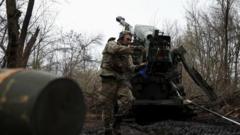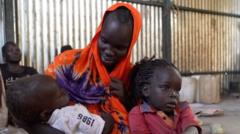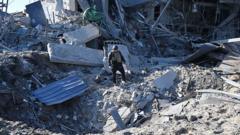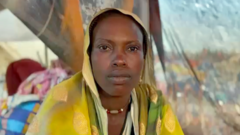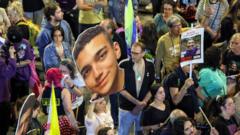As Israel's conflict with Hezbollah intensifies, displaced families from southern Lebanon seek refuge in northern communities, only to find the violence following them. The evolving sectarian tensions in Lebanon further complicate an already dire humanitarian situation.
Displaced Families Face Dire Circumstances Amidst Escalating Tensions in Lebanon

Displaced Families Face Dire Circumstances Amidst Escalating Tensions in Lebanon
A feature on the increasing plight of those fleeing violence in southern Lebanon, emphasizing the struggles of displaced families and the impact of Israeli airstrikes.
In the wake of escalating conflicts between Israel and the Shiite militant group Hezbollah, tensions throughout Lebanon are reaching a breaking point. The southern regions, which have already been severely impacted by Israeli airstrikes, are seeing hundreds of thousands of displaced families—primarily Shiite Muslims—fleeing northward in search of safety. However, as they relocate, the violence is beginning to follow them.
Residents of Aitou, a Christian village situated in northern Lebanon, were previously untouched by the war until the arrival of a Shiite family seeking refuge from the conflict. Their attempts to find safety turned tragic after an Israeli airstrike targeted their residence, resulting in the deaths of the family members and an aide purportedly distributing aid for Hezbollah. The devastating blast left only a statue of St. Charbel, a symbol of hope, unscathed amid the destruction.
This incident reflects a troubling pattern, as airstrikes are increasingly tracking the movements of displaced families who have settled in areas outside of Hezbollah's stronghold in the south. While fleeing families hope for refuge among other communities, they instead encounter the horrors of war, which continue to disrupt the social fabric of Lebanese society. The diverse sects in the country are now grappling with not only the shockwaves of violence but also rising tensions as people's loyalties and identities come into play.
As the aftermath of unrest looms, the crisis underscored in Aitou offers a glimpse into the broader humanitarian issues plaguing Lebanon, where long-standing sectarian divisions could lead to even greater unrest as communities are forced to confront the consequences of war.

